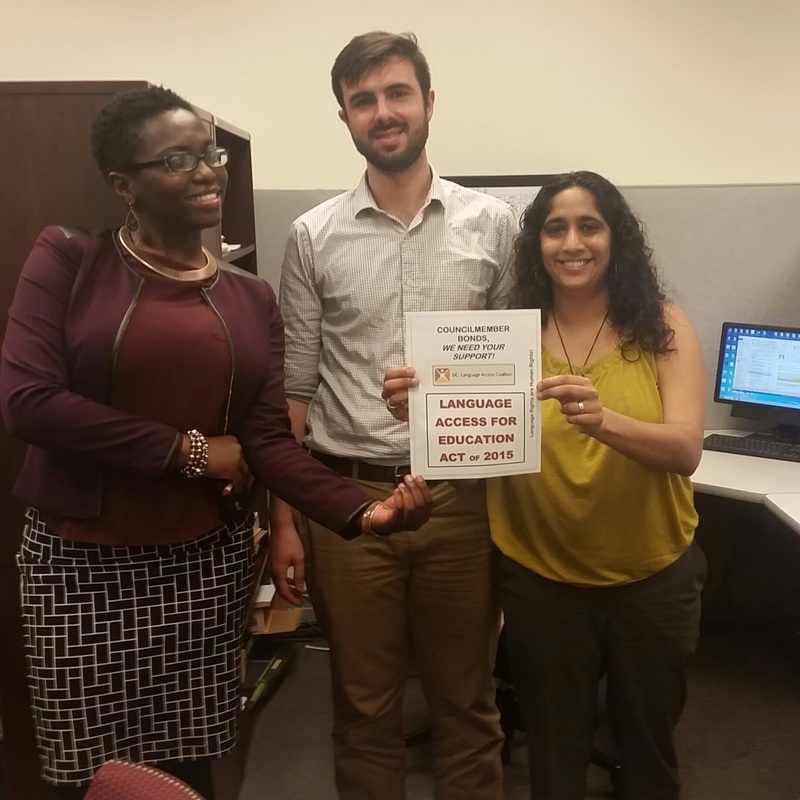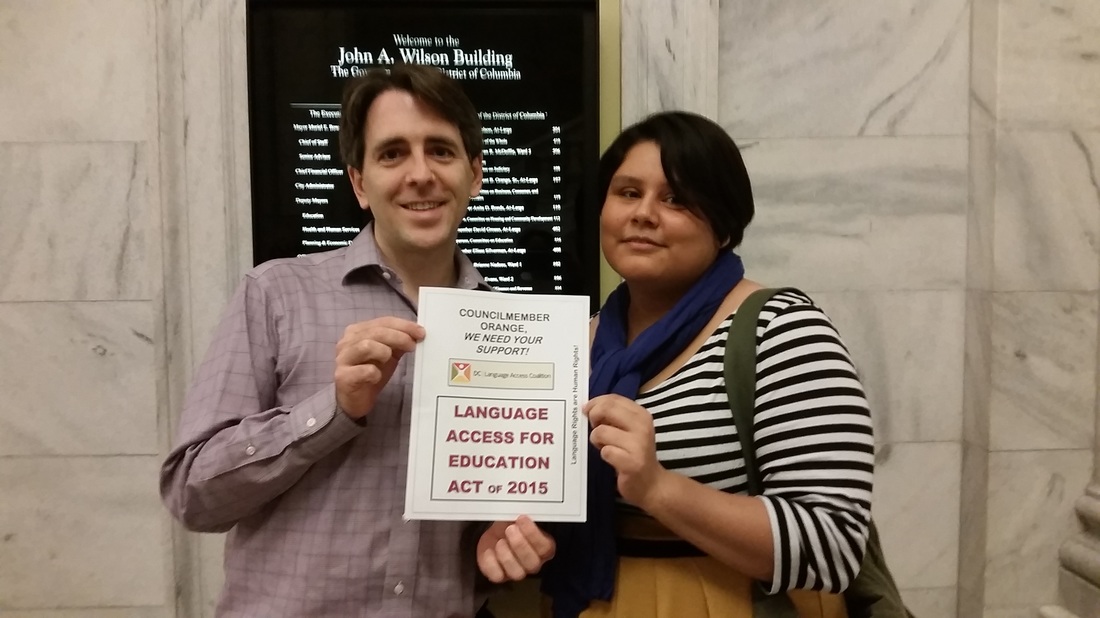|
DCLAC members Sylvie Bello (L) and Sapna Pandya (R) with Joey Trimboli in Councilmember Bonds' office. Our Advocacy Committee has been hard at work meeting with our District's lawmakers and advocating for language justice! This week our members met with staff from Councilmembers Bonds and Orange's offices to highlight the importance of language access for our immigrant communities and our community as a whole. We discussed the goals we aim to achieve with the Language Access for Education Amendment of 2015, and the language access issues faced by these communities on a daily basis, as well as the opportunities that the District misses out on by not fully including these community members. Councilmember Bonds' staff was excited to learn that we have modeled parts of our Language Access amendment on the Ban the Box legislation, which she championed, and we look forward to her support in improving language access across all of our communities in DC! DCLAC members David Steib and Mayra Ibarra outside Councilmember Orange's office. As we meet with Councilmembers, we are emphasizing our support for substantive improvements in language access, as we have proposed in the Language Access for Education Amendment of 2015. Below is our position statement on what must be included in the amendment in order to effect meaningful change.
Position Statement on The DC Language Access for Education Act of 2015 This document outlines DCLAC’s talking points with regard to the Language Access for Education Amendment Act of 2015. This document is consistent with DCLAC’s proposal regarding legislative modifications but also provides additional guidance for Coalition members regarding the reasoning in support of our positions and also proposals on which we will intentionally express “no opposition” without adopting those proposals on our own. Goal 1: Increase transparency of complaint and corrective action process Achieved by:
Goal 2: Create enforcement mechanisms – hold agencies that violate the Language Access Act accountable in a timely manner and provide incentives for agencies to comply with the Act Achieved by:
-$4000 for agencies between size [to be determined] and [to be determined]. -$6000 for agencies size [to be determined] and larger.
Goal 3: Make the person whose rights were violated “whole” – compensate for the damage incurred by the language access violation Achieved by:
Goal 4: Provide incentives for people to file complaints when their rights are violated Achieved by:
Goal 5: Provide greater resources for English Language Learner students and families and improve enforcement of Language Access requirements in DC Public Schools and DC Public Charter Schools Achieved by:
In addition, DCLAC is not opposed to the following proposal(s) we understand have been advanced by others:
0 Comments
Leave a Reply. |
Archives
March 2016
Language Access BlogLocal, national and global updates about language access news. Categories
All
|



 RSS Feed
RSS Feed
